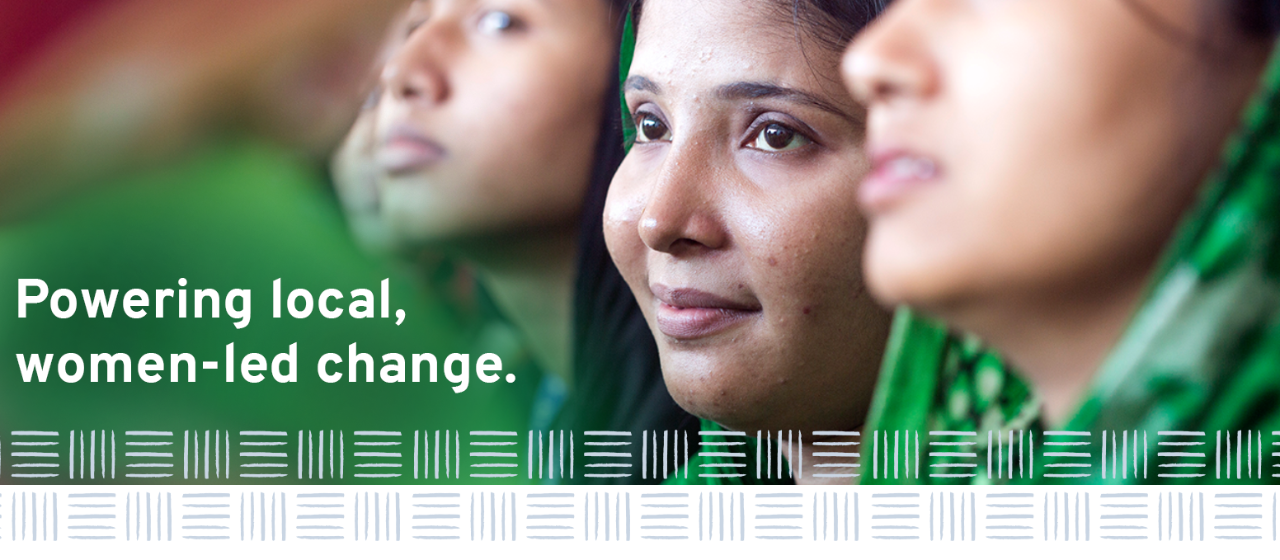Avery Dennison acquires Rietveld (RTVPRINT)
By Matthan Evans - Jan 17, 2022
“Women in the corporate value chain often have fragile livelihoods, as well as care burdens, threats of violence and little social support...Funding women-led organizations is critical to solving these challenges, because those organizations are closest and most responsive to marginalized women.”
Avery Dennison Foundation
March 1, 2022

Around the world, women keep the retail economy moving. As workers, business owners and consumers, women make up a significant portion of the global value chain that connects the sourcing of materials, the manufacturing and transport of products, and the buying and selling of goods.
But the COVID-19 pandemic has hit women especially hard. As a group, they have suffered a greater loss of jobs, wages and health care. At the same time, homebound women took on more caregiving responsibilities and were put at greater risk of domestic abuse.
To help address these disparities, the Avery Dennison Foundation joined Amazon, lululemon and other companies earlier this year in contributing to The Resilience Fund for Women in Global Value Chains. The first-of-its-kind fund was created by a number of collaborating organizations, including the United Nations Foundation’s Universal Access Project, to help women affected by the pandemic.
“The pandemic has undermined women’s autonomy and well-being, eliminating many hard-fought gains achieved over the past decades,” notes the Resilience Fund’s website. “These setbacks have been particularly evident in global supply chains, where women make up the majority of the workforce.”
By providing unrestricted funding to women-led community organizations focused on women’s safety, security, and sexual and reproductive health as long-term drivers of economic strength, the Resillience Fund is reaching beyond emergency relief to address the systemic challenges that impede women’s economic viability. And it’s doing it in a new way, by funding only women-led organizations, and employing governance in which funders and leaders of the receiving NGOs sit at the same table.
“Women in the corporate value chain often have fragile livelihoods, as well as care burdens, threats of violence and little social support,” said Avery Dennison Foundation President Alicia Procello. “Funding women-led organizations is critical to solving these challenges, because those organizations are closest and most responsive to marginalized women.” The $250,000 grant to the Resilience Fund, with consideration of additional funding over the next three years, is part of the Foundation’s ongoing commitment to support women’s empowerment, Procello said.
Focusing first on the apparel industry
Launched in 2021 with contributions from apparel companies PVH, H&M, Ralph Lauren, Gap and VF, the Resilience Fund first committed nearly $1 million in grants to grassroots organizations and women’s funds in Bangladesh and India whose programs focused on sexual and reproductive health and rights, gender-based violence, economic empowerment, and more. Funding provided this year by the Avery Dennison Foundation and other companies will help extend the Fund’s reach.
“These new investments…will enable us to expand our grantmaking to Southeast Asia in 2022 and put us more than halfway to our goal of being able to invest $10 million in women-led grassroots organizations around the world,” said David Wofford of the Universal Access Project, the Fund’s fiscal sponsor.
A different kind of corporate philanthropy
In addition to tackling entrenched challenges facing women, the Resilience Fund also aims to change the way corporate giving is done. It will leverage pooled funding, democratic governance, and real-time collaborative learning and information-sharing through an online platform. A goal of the fund is to equalize the power balance among granting organizations and beneficiaries, both of whom will be represented on the Fund’s governing board.
“The strength of the [Resilience Fund] is its approach of supporting grantees to lead the change within their communities,” said Kelsy McCabe, a sustainability project engineer in Avery Dennison’s Retail Branding and Information Solutions business, who helped review the Fund’s grant proposal. “[The Fund] aims to challenge status quo corporate funding by not being top-down, but by being supportive of females, allowing them to make the decisions, since they know their communities the best.”
And addressing the needs of women more effectively is critical, Procello said, because women are a link in the global retail value chain that is as vulnerable as it is essential.
“All of us wear and use things every day produced by women —their contribution is enormous,” she said. “We also know that when women thrive, so do economies. By supporting the Resilience Fund, we’re investing not only in women’s economic empowerment, but in the strength and sustainability of the workers and business owners who are nothing less than the backbone of the worldwide retail economy.”
Read more about the Avery Dennison Foundation here, and about he Resilience Fund for Women in Global Value Chains here.